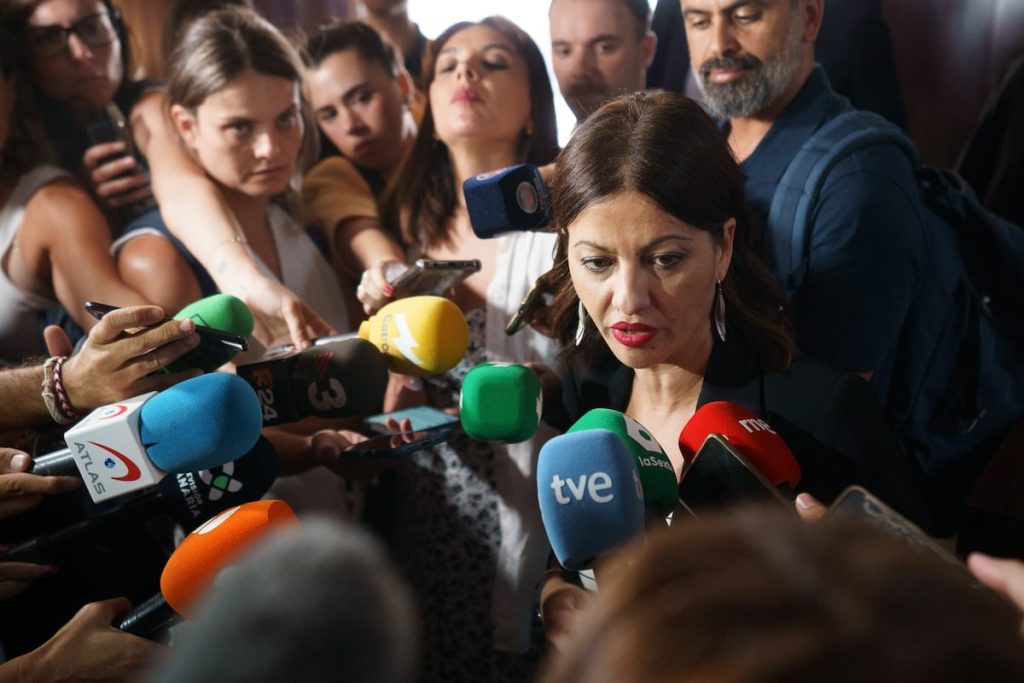The Ministry of Youth and Childhood begins the political term focusing on managing the crisis of migrant minors. After an increase in arrivals in recent weeks and the rejection of a proposal to reform the immigration law to make the distribution of minors among communities mandatory, the ministry, led by Sira Rego, is intensifying contacts to find solutions to the crisis faced by the islands and the autonomous city of Ceuta. Minister Rego is set to travel to the Balearic Islands, which have also been affected by arrivals, albeit to a lesser extent than the Canary Islands. Currently, the Canary Islands are hosting around 5,100 minors, exceeding their capacity of 2,000 places.
The ministry is coordinating efforts between the Spanish government and the autonomous communities, which have jurisdiction over minors. In mid-August, 303 unaccompanied minors were welcomed by the government of Mallorca, managed by the Popular Party. Minister Rego will also travel to Ceuta next week to meet with local authorities, including Popular Party leader Juan Jesús Vivas. Ceuta recently experienced a peak in arrivals, with 47 minors arriving in a single day. Currently, the city is caring for 475 children and adolescents, surpassing its maximum capacity of 88.
The saturation of resources extends to the facilities for adult migrants arriving daily. The government delegate in Ceuta described the situation as an “extreme migratory pressure”, with an average of 500 attempted entries from Morocco and Algeria per day. The government is working with local authorities and the Ministry of Youth and Childhood to establish new facilities for minors if needed. The possibility of involving NGOs in relocating minors to other communities beyond the voluntary quota agreed upon in the July conference is being explored.
Minister Rego’s visit to the Balearic Islands, following a visit to the Canary Islands, coincides with Prime Minister Pedro Sanchez’s trip to Mauritania, Gambia, and Senegal to enhance border control. This visit follows a meeting between the president and Canary Islands president Fernando Clavijo, during which the government committed to providing 50 million euros to compensate the archipelago for financial efforts in managing the crisis. Both the central government and the Canary Islands government are pressuring the Popular Party to support mandatory distribution of minors.
The ministry is working to address the crisis facing migrant minors, with efforts focusing on collaboration with autonomous communities and exploring new facilities to accommodate the influx of arrivals. Minister Rego’s visits to the Balearic Islands and Ceuta demonstrate the government’s commitment to finding solutions to the challenges faced by these regions. Prime Minister Sanchez’s overseas trip and commitment to providing financial support also highlight the government’s efforts to address the situation. The involvement of NGOs and the negotiations with the Popular Party illustrate the complex and collaborative approach being taken to manage the crisis effectively.


